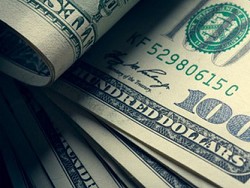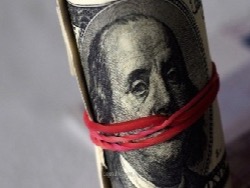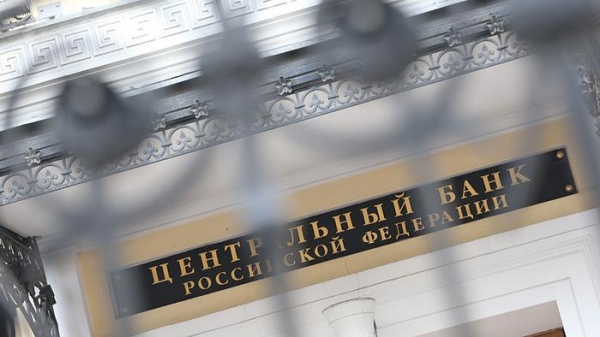
At the beginning of year the dollar rose in price rapidly. By that time its exchange rate in trade-weighted terms has increased by almost 20% since July 2014 After the US Federal reserve raised interest rates (the first time since 2006), it seemed that the dollar has no other way but to move up.
However, already then there were doubts. In mid-December, respondents Bank of America Merrill Lynch Fund managers said that being long the dollar has become the most common trend in the financial market and the us currency is overvalued.
The dollar continued to strengthen during the first three weeks of the year, but then came the reversal: from 20 January “American” dropped to 3.8% in trade-weighted terms. Most likely, the main reason for rebound was the change in the fed’s policy; in the beginning of the year investors were expecting a three or four-building bet in 2016, the Last Central Bank report indicates only two possible increase.
The rise of the dollar may affect the position of the fed, as a stronger currency is already tightening monetary conditions. The office of Janet Yellen cut its forecast for economic growth this year to 2.2% (although some experts even consider this figure overly optimistic).
Last week, the fed supported a cautious approach to further rate increase. According to her “developments in the global economy have increased the risks”, and conditions in the economy and the financial sector become less favourable than in December. Yellen words further down the dollar and pushed up share prices, says the British magazine the Economist.
Exchange rate – the relative price of two currencies, so the recent decline of the dollar is a reflection not only of the fed’s policy. First, the increase in the prices of raw materials allowed the currencies of emerging markets to Mature. Index of the exchange rate in developing countries, compiled by Capital Economics, has reached its highest level since November last year.
Secondly, the recent reaction of the markets to change the policy of other Central banks is clearly contrary to common sense. Usually the easing of monetary policy leads to a weakening of the national currency. However, recent policy changes by the European Central Bank and the Bank of Japan led to the strengthening of the Euro and the yen, and not to reduce them. For many it was a mystery.
Some economists believe that market movements indicate that the policy of Central banks today is less effective than after the 2008 crisis, Others believe that the negative interest rate deals blow to banks ‘ profits and therefore is a poor financial instrument.
If the policy easing the Central Bank does not bring the expected effect and the exchange rate does not change, then what to do next? The most anticipated step may be direct intervention: sell local currency and buy foreign assets. The Swiss national Bank maintained this policy since September 2011 (fixing the franc to the Euro) until January of last year, when suddenly it was abandoned.
Japan’s economy continues to face serious challenges despite the three-year abromika (according to the latest data, in February industrial production fell by 6.2%). According to currency strategist at Royal Bank of Scotland the Mansoor Mohi-Uddin, the strengthening of the yen below 110 to the dollar “ will increase the likelihood that the authorities will intervene to stem the rise of currencies”.
The change in the movement of the dollar may have just shifted the problem. A strong dollar is bad news for emerging markets; for those who have a currency tied to the greenback, the rise in the currency weakens their competitiveness on the export market; for those who have a floating exchange rate increases the cost of servicing dollar-denominated debts.
A weaker dollar is not good news for developed countries that need to export to recover their weakened economies. They will most likely take all of 2016 to determine strategies to address this problem.








